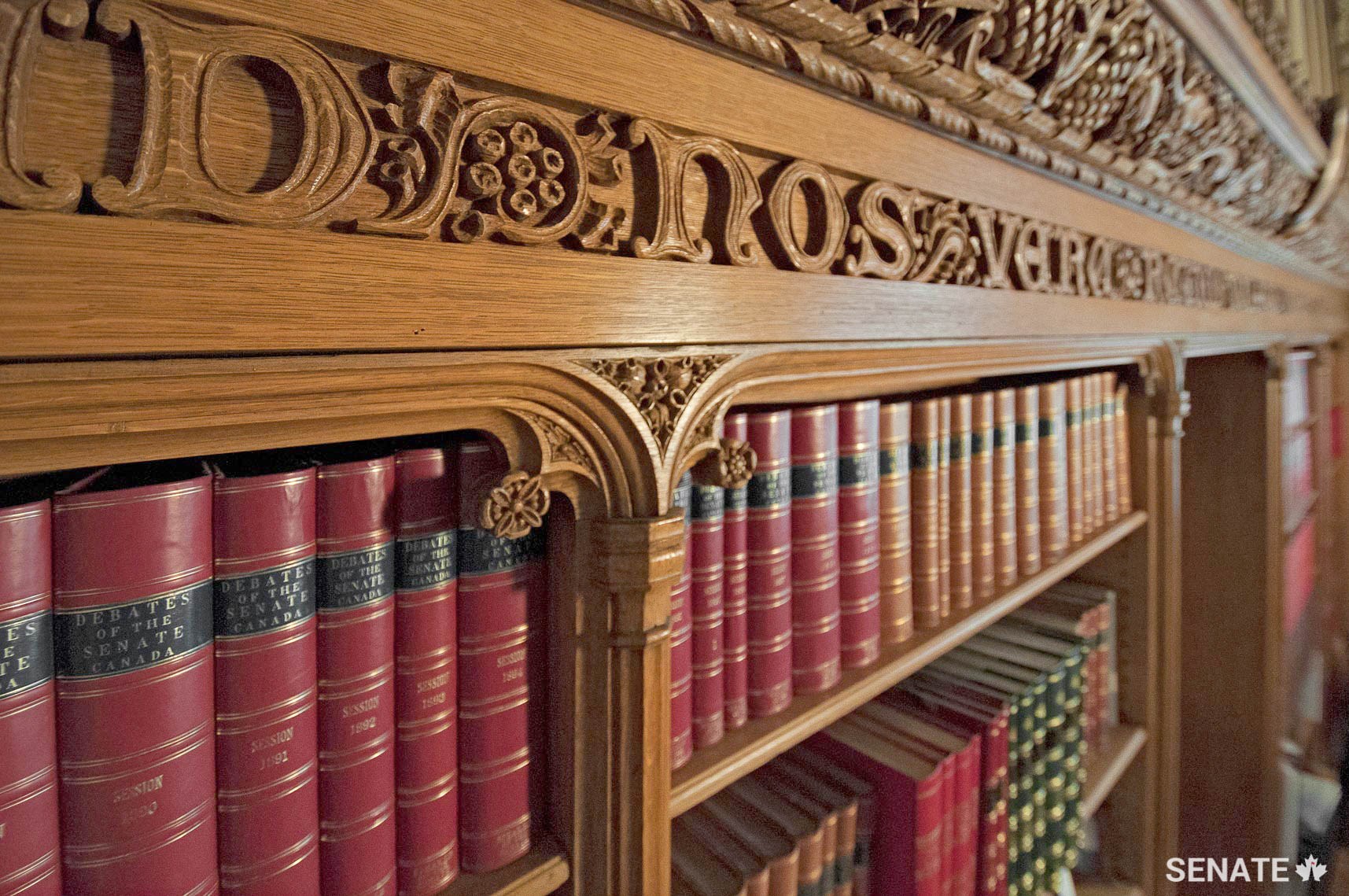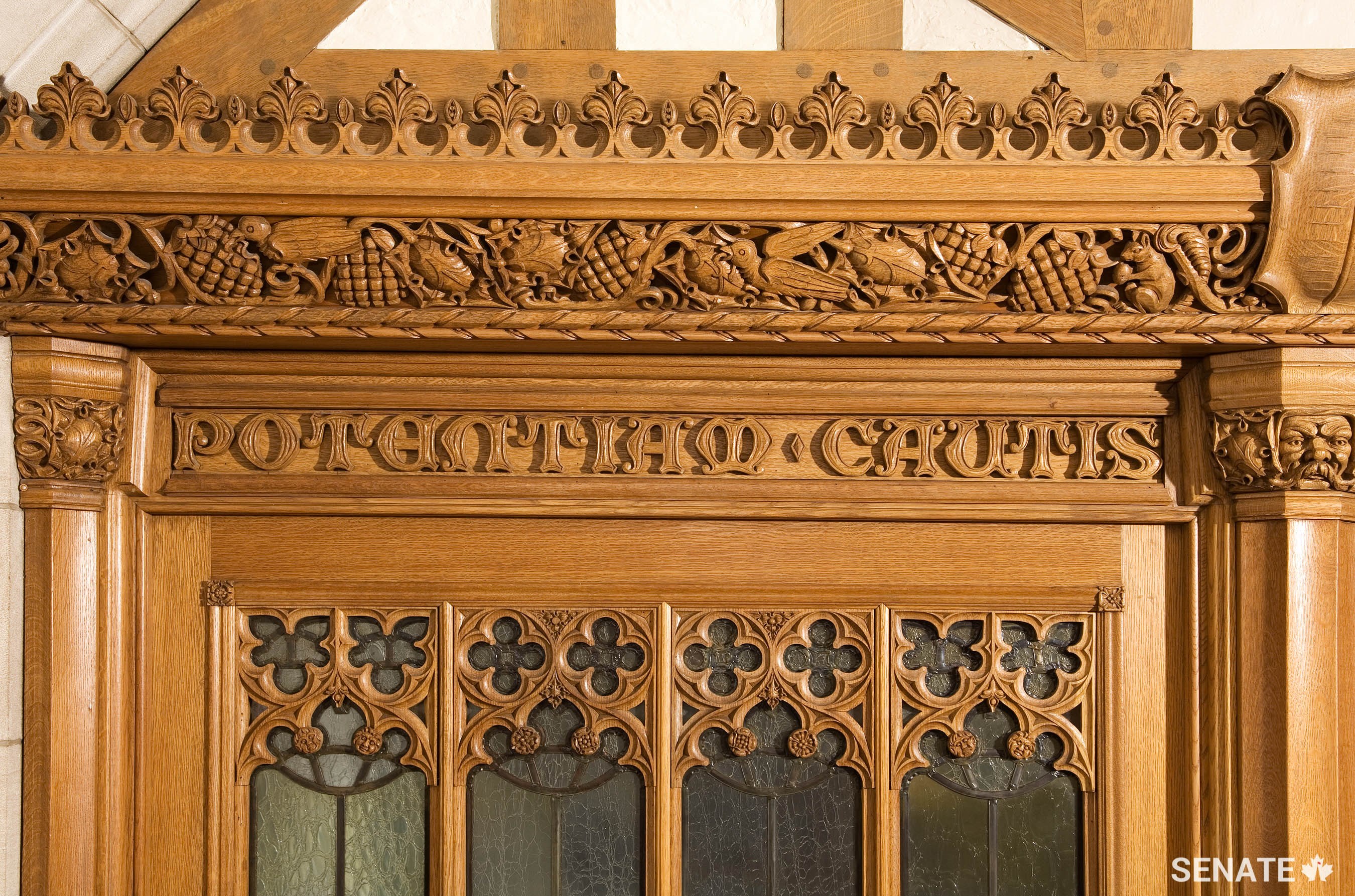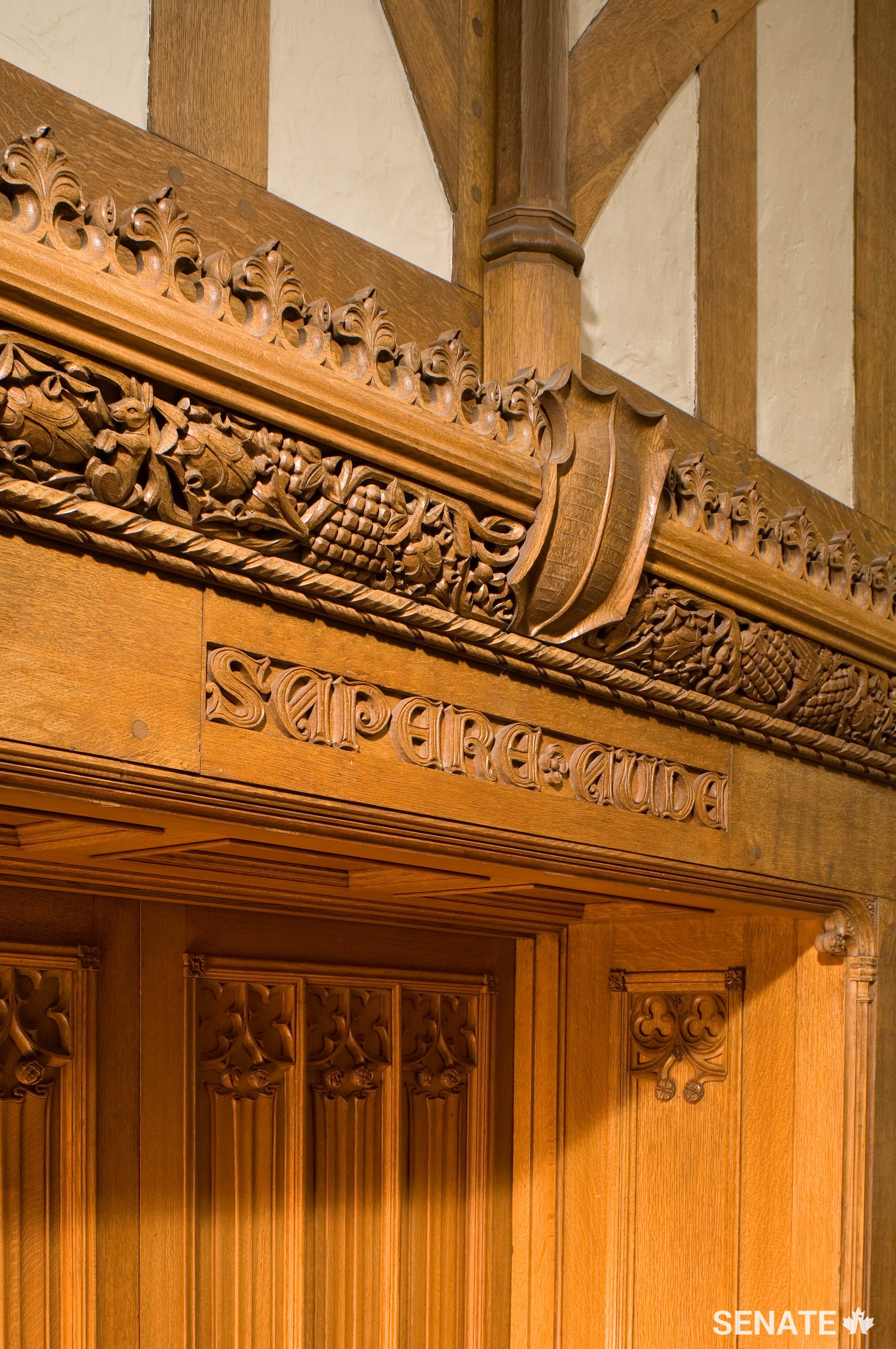Echoes of antiquity in the Senate Speaker’s chambers

He was a renowned public speaker who campaigned against corruption during his 31 years in the Senate. He thwarted an anti-government conspiracy, fought against authoritarianism and was hunted down and murdered by his political enemies.
It’s been more than 2,000 years since Roman Senator Marcus Tullius Cicero delivered what are considered some of the finest speeches ever composed, but his words still echo in Parliament Hill’s Centre Block.
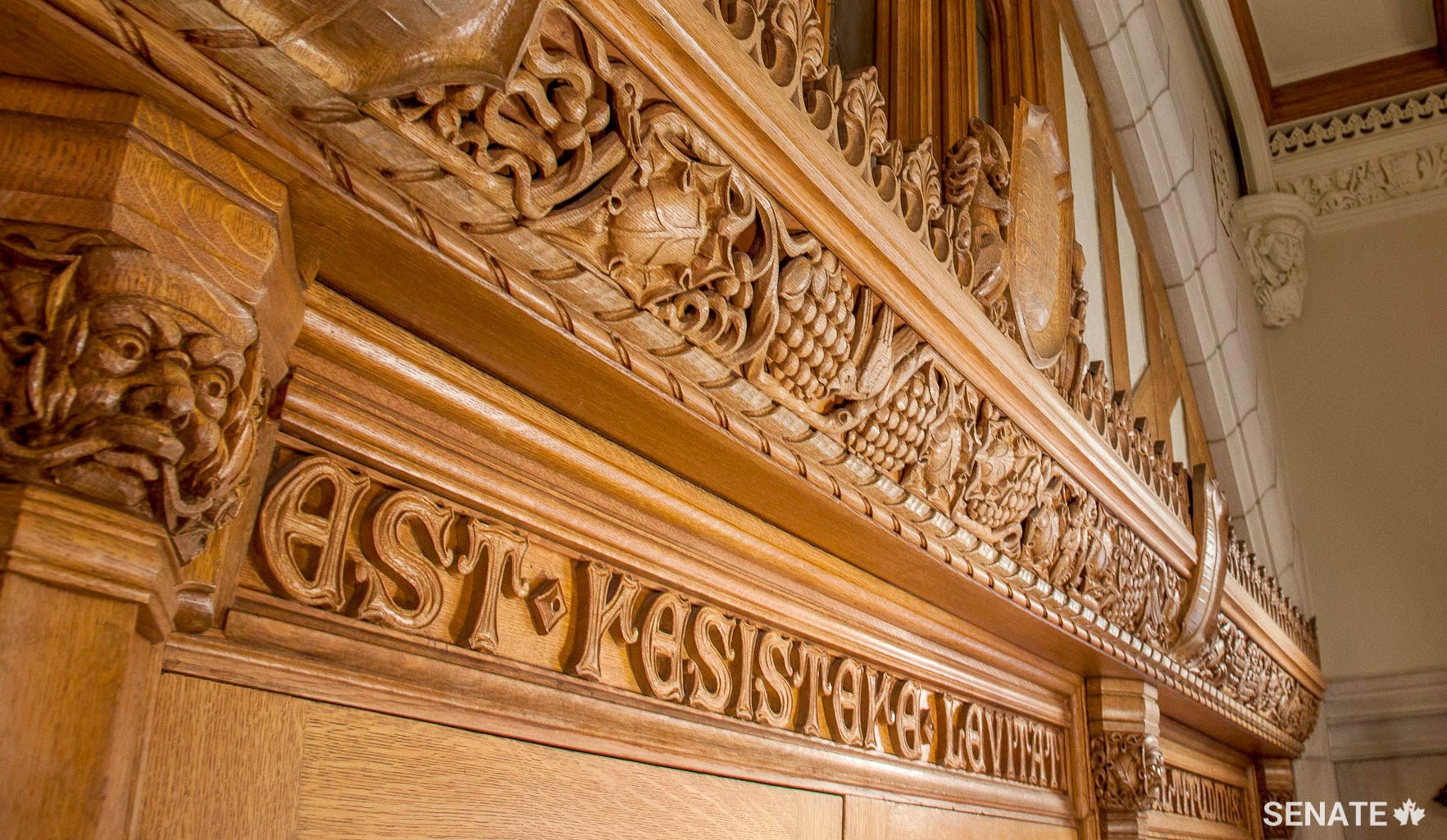

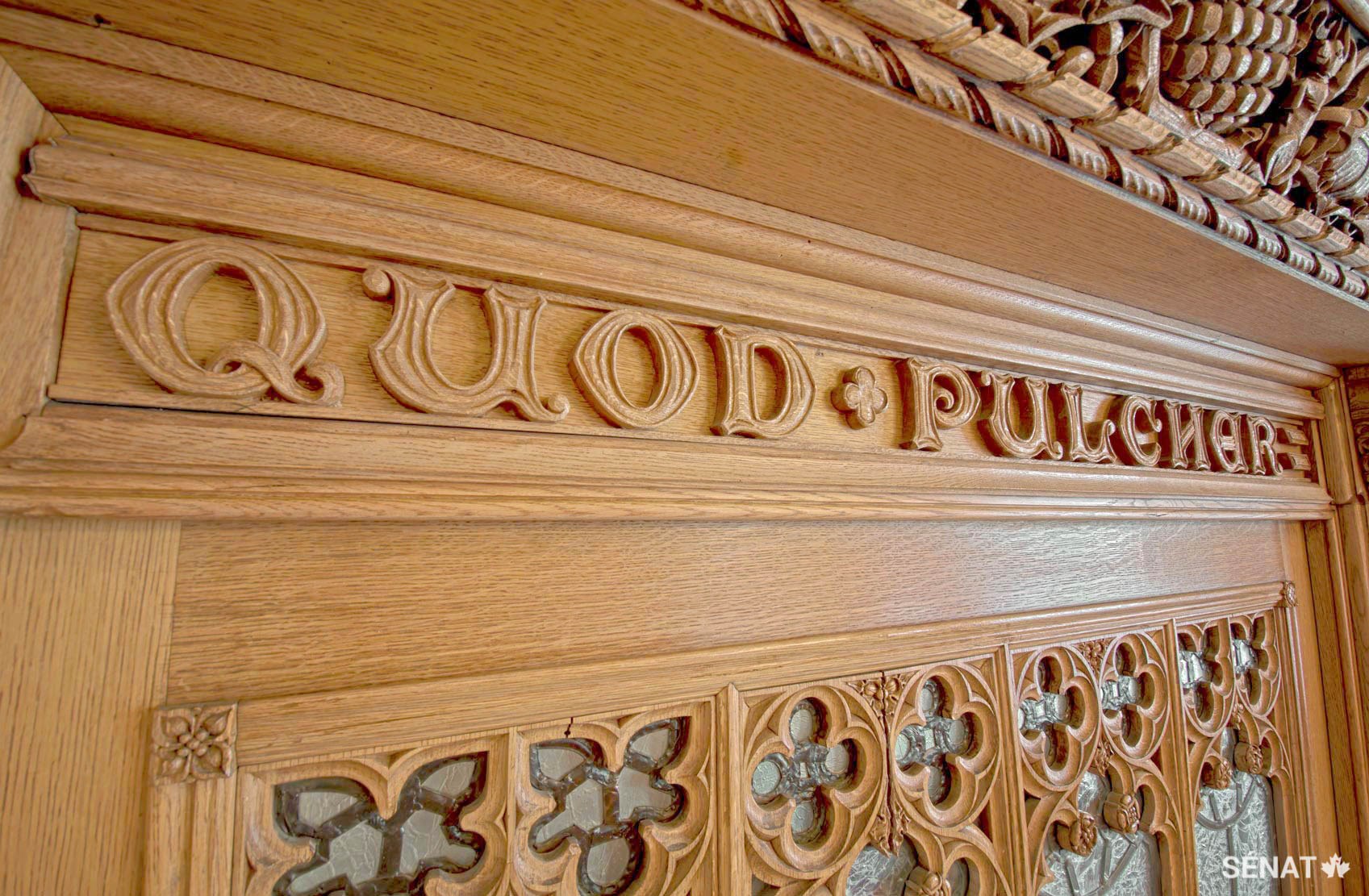
Two Cicero quotations are among six Latin inscriptions carved in white oak lintels in the Senate Speaker’s chambers, a distillation of the wisdom of ancient Rome’s most revered public figures.
Cicero, Tacitus, Horace, Livy and Seneca all wrote about social unrest from firsthand experience. Their battle-scarred observations affirm ideals of good governance, principled leadership and moral integrity.
Their words would have resonated with the craftsmen who carved these inscriptions in the Senate Speaker’s chambers in 1924, six years after nearly 61,000 Canadians died in the First World War.
The location of the inscriptions carries particular significance. As the presiding officer of the upper chamber, the Senate Speaker moderates debate and rules on questions of parliamentary procedure. The quotations are reminders of the importance of restraint, wisdom and considered action — all values the Senate of Canada exemplifies.
“The ideals that inspired these Latin authors infuse our own parliamentary institutions,” said Speaker of the Senate George J. Furey. “They serve as an inspiration to every senator who has had the privilege of occupying these offices.”
The inscriptions draw a direct line between Canada’s form of representative government and the republican system that arose 2,500 years ago when Rome expelled the last of seven kings and put an end to 250 years of absolute rule. The Romans established an early form of democratic governance in which each layer of society — merchants, soldiers, landowners and aristocrats — was represented in assemblies where delegates lobbied for their interests.
This revolutionary system of common suffrage coupled with thorough checks and balances helped Rome become antiquity’s most powerful civilization and the template on which nearly every modern democracy has been modelled for the last 240 years. By identifying itself with the world’s first republic, these maxims tie the Senate to these enduring foundational principles.
Learn more about these inscriptions in the Senate publication Words of Wisdom. Explore the Speaker’s chambers — and the rest of the Senate — by taking the Senate Virtual Tour.
